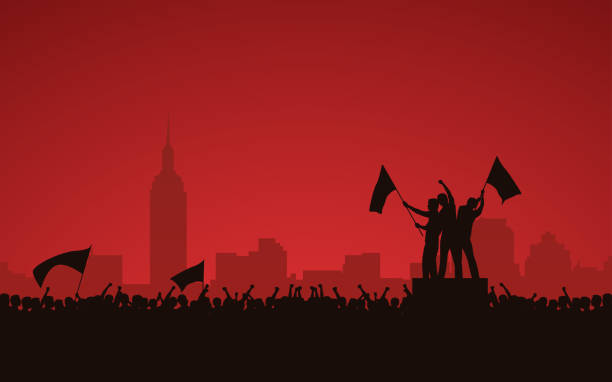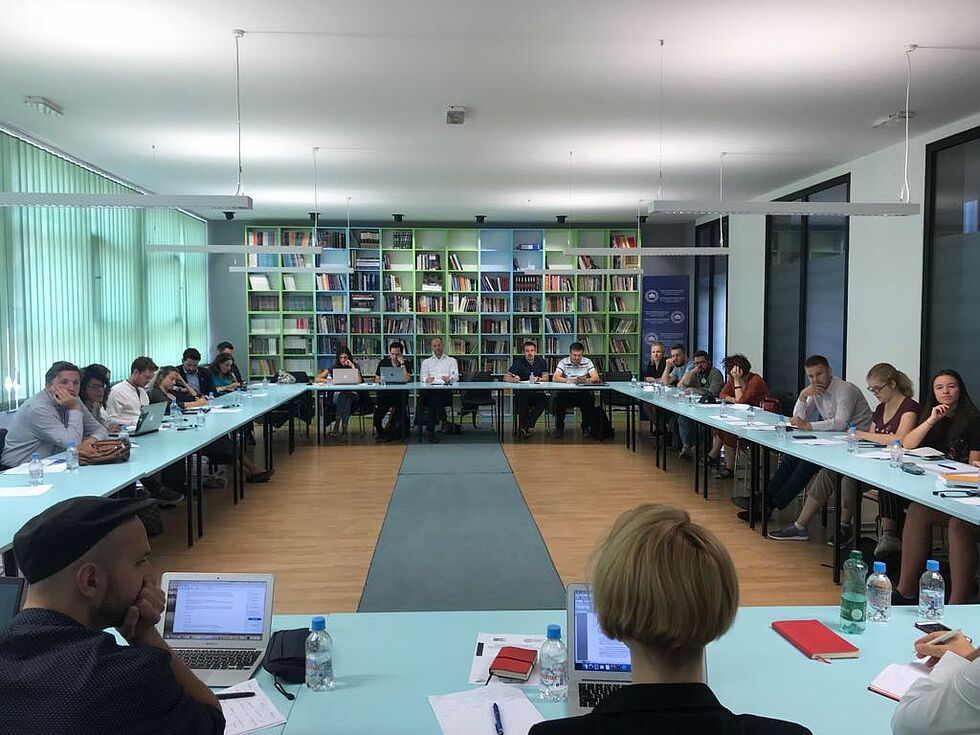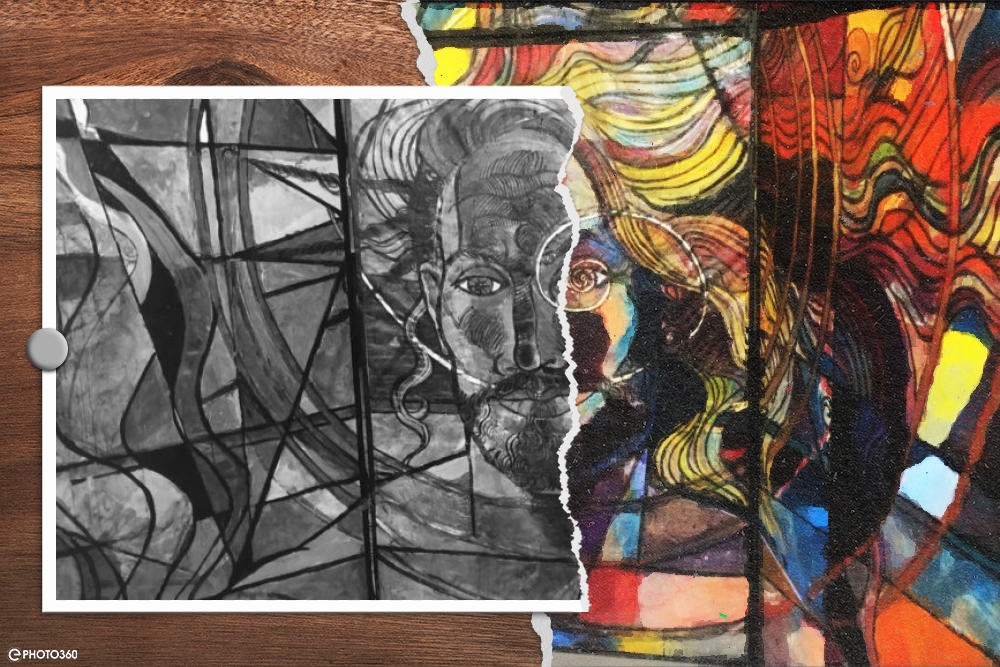- Visitor:16
- Published on:
Is the West Living in Denial? A Warning to the West -2
Why is it that people in the West are blind to the truth of Communist societies? Is there a sense of denial and whence does it stem from? Read on to know more.

THE BBC HAS been kind enough to invite me to give my opinion, as a foreigner and an exile, on the West as it is today and, in particular, on England. Perhaps an outside view might be able to contribute something fresh. My only hope is that you will not find what I have to say too tedious. I admit I am not all that well acquainted with the internal affairs of your country, but like so many Russians I have always followed Britain’s foreign affairs with the keenest interest. I intend to speak frankly and I shall not try to please you or to flatter you in any way. I would ask you to believe me when I say nothing could give me more pleasure than to express only admiration. A quarter of a century ago, in the labor camps of Kazakhstan, as we braced ourselves for our hopeless task of stemming the Communist tanks, the West represented the light of freedom. For us the West was not only the stronghold of the spirit but also the depository of wisdom.
In that very year one of your ministers, Herbert Morrison, somehow managed to persuade Pravda to devote an entire page to a statement of his, without any censorship. My God, how eagerly we rushed to where the paper was displayed—a crowd of convicts with shaven heads, filthy jackets, clumsy prison-camp boots.
This was it! At last our subterranean kingdom was going to be pierced with the diamond-bright, diamond-hard ray of truth and hope! At last, Soviet censorship, held for forty years in the grip of a bulldog’s jaws, was to be relaxed. Now he’d make them see the truth! Now he’d stand up for us! But as we read and reread that feeble, insipid article, our hopes subsided slowly. These were the superficial words of someone who had not the slightest idea of the savage structure, the pitiless aims of the Communist world—and of course this was precisely why Pravda so generously agreed to print them. We had endured forty years of hell, and this British minister could find no word of hope for us.
The years went by. The decades went by. In spite of the Iron Curtain, views on what was happening in the West, what people were thinking about, kept coming through to us, mainly thanks to the BBC’s Russian broadcasts, although they were vigorously jammed. And the more we learned, the more the state of your world perplexed us.
Human nature is full of riddles and contradictions; its very complexity engenders art—and by art I mean the search for something more than simple linear formulations, flat solutions, over simplified explanations. One of these riddles is: how is it that people who have been crushed by the sheer weight of slavery and cast to the bottom of the pit can nevertheless find the strength to rise up and free themselves, first in spirit and then in body; while those who soar unhampered over the peaks of freedom suddenly lose the taste for freedom, lose the will to defend it, and, hopelessly confused and lost, almost begin to crave slavery. Or again: why is it that societies which have been benumbed for half a century by lies they have been forced to swallow find within themselves a certain lucidity of heart and soul which enables them to see things in their true perspective and to perceive the real meaning of events; whereas societies with access to every kind of information suddenly plunge into lethargy, into a kind of mass blindness, a kind of voluntary self-deception.
This is precisely what we have found to be the correlation between the spiritual development of the East and that of the West. And, alas, the process of your development is five, if not ten times swifter than ours. This is what almost robs mankind of any hope of avoiding a global catastrophe. For years we refused to believe this, thinking that the information which reached us was inadequate. A few years ago I spoke of this with considerable alarm in my Nobel lecture.
And yet, until I came to the West myself and spent two years looking around, I could never have imagined the extreme degree to which the West actually desired to blind itself to the world situation, the extreme degree to which the West had already become a world without a will, a world gradually petrifying in the face of the danger confronting it, a world oppressed above all by the need to defend its freedom.
There is a German proverb which runs Mut verloren—alles verloren: “When courage is lost, all is lost.” There is another Latin one, according to which loss of reason is the true harbinger of destruction. But what happens to a society in which both these losses—the loss of courage and the loss of reason—intersect? This is the picture which I found the West presents today.
Of course there is a perfectly simple explanation for this process. It is not the superficial one, so fashionable in our day, that man himself is irreproachable and everything is to be blamed on a badly organized society, but a purely human one. Once, it was proclaimed and accepted that above man there was no supreme being, but instead that man was the crowning glory of the universe and the measure of all things, and that man’s needs, desires, and indeed his weaknesses were taken to be the supreme imperatives of the universe. Consequently, the only good in the world—the only thing that needed to be done—was that which satisfied our feelings. It was several centuries ago in Europe that this philosophy was born; at the time, its materialistic excesses were explained away by the previous excesses of Catholicism. But in the course of several centuries this philosophy inexorably flooded the entire Western world, and gave it confidence for its colonial conquests, for the seizure of African and Asian slaves. And all this side by side with the outward manifestations of Christianity and the flowering of personal freedom. By the beginning of the twentieth century this philosophy seemed to have reached the height of civilization and reason. And your country, Britain, which had always been the core, the very pearl, of the Western world, gave expression with particular brilliance to this philosophy in both its good and its bad aspects.
[Source: Warning to the West – Aleksandr Solzhenitsyn, Vintage Publication]
Center for Indic Studies is now on Telegram. For regular updates on Indic Varta, Indic Talks and Indic Courses at CIS, please subscribe to our telegram channel !
- 8 min read
- 0
- 0










